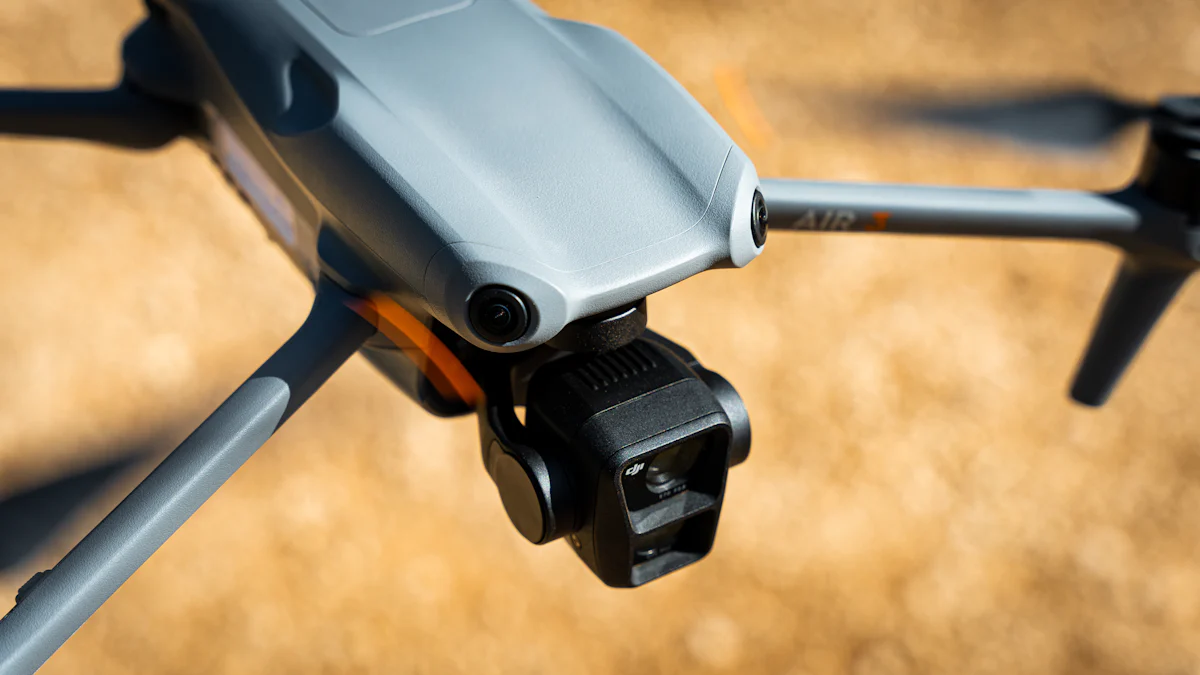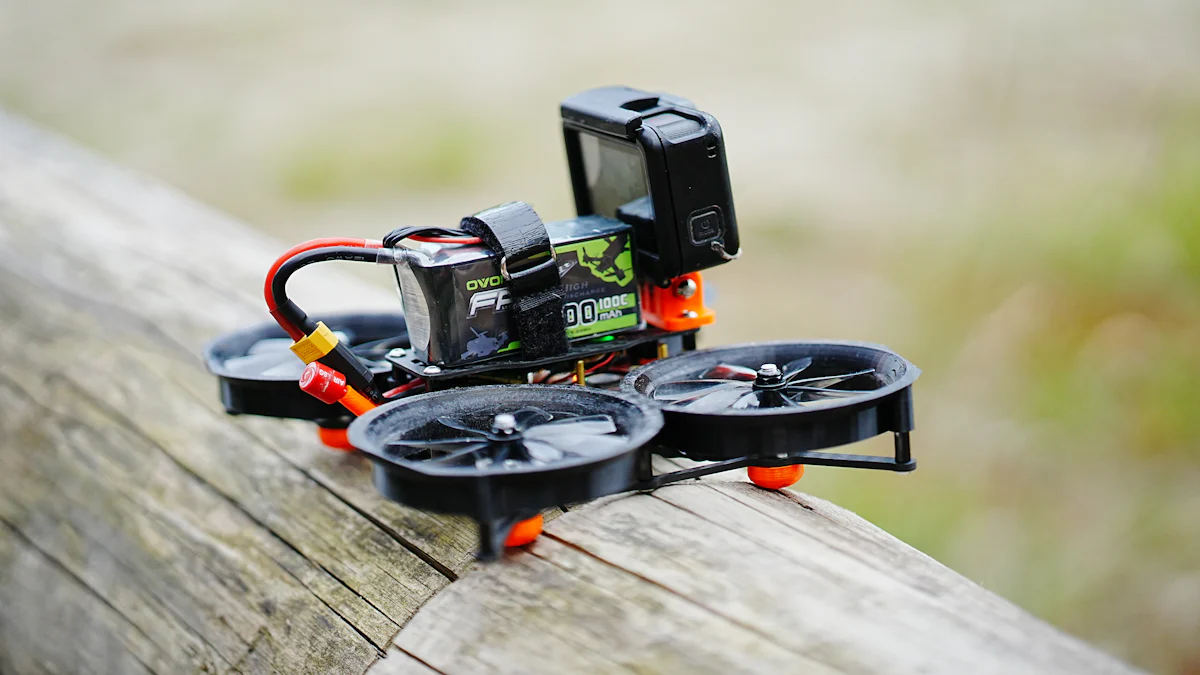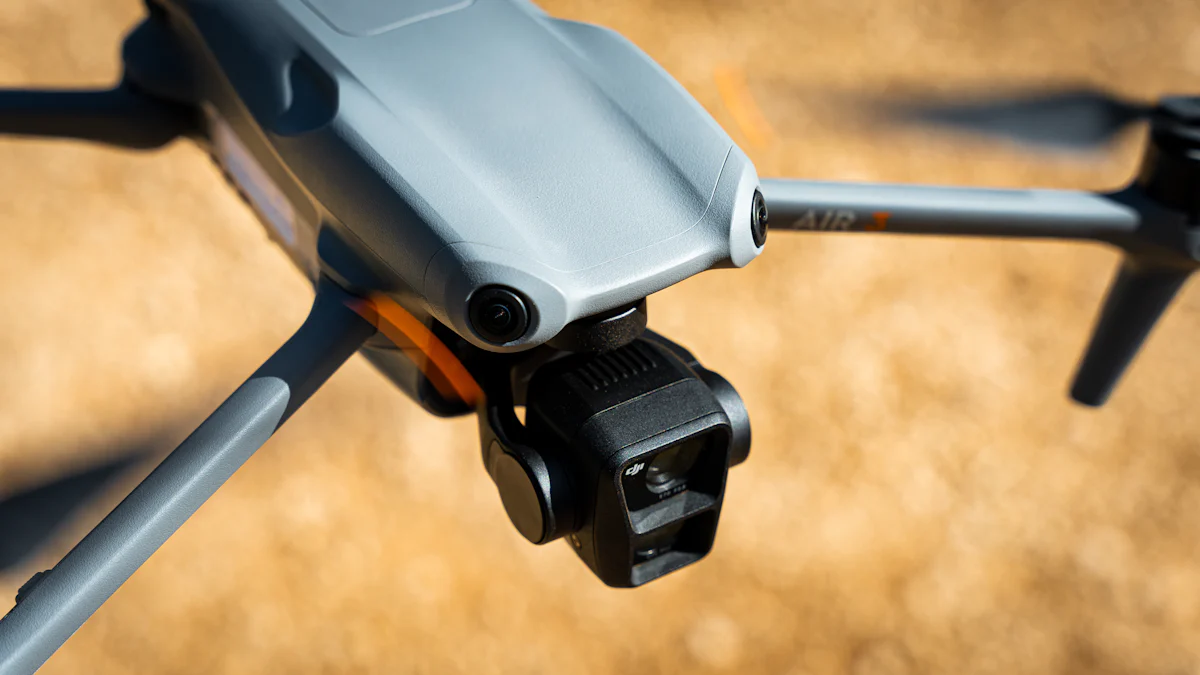How to Enhance Drone Surveillance with Analog FPV Thermal Camera

Introduction to Analog FPV Thermal Cameras
In the realm of drone surveillance, analog FPV thermal cameras stand out as game-changers, offering unmatched advantages that elevate operational capabilities and effectiveness. These innovative cameras not only enhance safety standards but also boost operational efficiency in various surveillance activities. By providing real-time thermal imaging capabilities, analog FPV thermal cameras empower drone operators to detect heat sources and analyze temperature differentials on the fly.
The historical progression from standard cameras to thermal imaging has been monumental. The first infrared camera made in 1929 marked a significant shift towards advanced surveillance technologies. Today, the integration of FPV thermal cameras with drones has revolutionized wildlife monitoring and various other applications.
When considering the use of analog FPV thermal cameras, it's crucial to understand their advantages and limitations. These cameras excel at detecting even the slightest temperature differences, making them invaluable in scenarios where visual observation is hindered by low light conditions or environmental obstacles.
Benefits of Using Analog FPV Thermal Cameras in Drone Surveillance

As drone technology advances, the integration of analog FPV thermal cameras brings forth a myriad of benefits that significantly enhance surveillance operations. Let's delve into the advantages these innovative cameras offer in optimizing visibility and operational efficiency.
Enhanced Visibility in Various Conditions
Seeing Through Smoke and Fog
One of the standout features of analog FPV thermal cameras is their ability to penetrate through challenging environmental conditions like dense smoke or fog. By detecting heat signatures rather than relying on visible light, these cameras provide clear imaging even when traditional cameras fail. This capability proves invaluable in scenarios where swift decision-making is crucial, such as firefighting operations or disaster response efforts.
Nighttime Surveillance Capabilities
When the sun sets and darkness shrouds the landscape, analog FPV thermal cameras shine brightly. Equipped with real-time thermal imaging capabilities, these cameras enable drones to navigate and conduct surveillance missions during nighttime hours effectively. The ability to detect heat-emitting objects with precision enhances security patrols and monitoring activities in low-light environments.
Improved Operational Efficiency
Covering Larger Areas
By harnessing the power of analog FPV thermal cameras, drones can cover expansive areas swiftly and efficiently. The mobility and accessibility offered by these cameras allow for seamless integration with existing FPV systems, expanding the reach of surveillance missions. This increased coverage capability proves vital in applications such as large-scale event monitoring or border security operations.
Long-Range Detection Abilities
The long-range detection abilities of analog FPV thermal cameras elevate drone surveillance to new heights. With the capacity to swiftly identify heat signatures from afar, drones equipped with these cameras excel in aerial inspections and search-and-rescue missions. Their role in detecting anomalies in machinery and infrastructure underscores their tangible impact across diverse industrial sectors.
Practical Applications of Thermal Camera Drones

In the realm of drone technology, the practical applications of thermal camera drones extend far beyond traditional surveillance functions. These advanced tools play a pivotal role in critical operations such as search and rescue missions and security surveillance tasks. Let's explore how the integration of thermal imaging technology enhances these essential applications.
Search and Rescue Operations
Locating Missing Persons in Challenging Environments
When disasters strike or individuals go missing in remote areas, time is of the essence. Analog FPV thermal cameras equipped on drones become invaluable assets in locating lost individuals swiftly and efficiently. As highlighted by experts, these thermal UAVs can detect heat signatures from victims trapped in disaster zones, even under adverse conditions like darkness or inclement weather. By utilizing unique cameras that perceive heat invisible to the naked eye, thermal drones revolutionize search and rescue efforts by enhancing visibility and detection capabilities.
Wildlife Monitoring and Conservation Efforts
Beyond human-centric applications, thermal camera drones also contribute significantly to wildlife monitoring and conservation initiatives. These aerial tools aid researchers in tracking animal movements, surveying habitats, and identifying species populations with minimal disturbance. By leveraging thermal imaging technology, drones equipped with iSun FPV thermal cameras provide crucial data for conservationists to protect endangered species and preserve natural ecosystems effectively.
Security and Surveillance
Border Patrol and Perimeter Security
In the realm of security operations, thermal camera drones play a vital role in border patrol activities and perimeter surveillance. The ability to detect heat-emitting objects from a distance enhances border control measures by providing real-time insights into potential threats or unauthorized crossings. By integrating analog FPV thermal cameras into drone systems, security agencies bolster their surveillance capabilities to safeguard national borders effectively.
Identifying Potential Threats in Sensitive Areas
The versatility of thermal camera drones extends to identifying potential threats in sensitive environments where conventional surveillance methods fall short. With the capacity to visualize heat differentials with precision, these drones enhance situational awareness in critical infrastructure sites or high-security zones. By leveraging the advanced features of thermal camera drone DJI, security teams can proactively identify anomalies or suspicious activities that pose risks to public safety.
Tips for Integrating an iSun FPV Thermal Camera into Your Drone Setup
When delving into the realm of thermal imaging for drone surveillance, selecting the right thermal camera is paramount to ensure optimal performance and compatibility with your existing drone setup. Let's explore essential tips for seamlessly integrating the cutting-edge iSun FPV thermal camera into your drone system.
Choosing the Right Thermal Camera for Your Drone
Compatibility with Your Drone Model
Before making a purchase decision, assess the compatibility of the iSun FPV thermal camera with your specific drone model. Ensure that the camera's dimensions and mounting mechanisms align with your drone's design to guarantee a secure fit and stable operation during flight missions.
Considering the iSun FPV Thermal Camera
The iSun FPV thermal camera stands out in terms of functionality and performance, offering high-resolution thermal sensors that deliver detailed imagery. Its lightweight design enhances portability, making it ideal for various applications. Additionally, the integration of First Person View (FPV) technology enables real-time transmission of thermal data, providing immediate insights into temperature differentials across diverse environments.
Best Practices for Installation and Use
Secure Mounting Techniques
When installing the iSun FPV thermal camera on your drone, prioritize secure mounting techniques to prevent any potential dislodging or instability during flight. Utilize sturdy mounting brackets or custom adapters to ensure a snug and reliable attachment that can withstand aerial maneuvers and environmental conditions.
Maximizing the Benefits of Thermal Imaging
To leverage the full potential of thermal imaging capabilities offered by the iSun FPV thermal camera, familiarize yourself with its operational features and settings. Experiment with different imaging modes and temperature scales to optimize image clarity and enhance detection accuracy during surveillance missions.
See Also
Optimizing Drone Monitoring Using Analog FPV Thermal Cameras
Boosting Drone Photography with Analog FPV Thermal Cameras
Perfecting Drone Monitoring: Leveraging Analog FPV Thermal Camera
Unlocking Drone Potential: Harnessing Analog FPV Thermal Cameras
Optimizing Drone Monitoring: Exploring Analog FPV Thermal Camera Advantages
Contact Us: Ms. Coco Huang
E-mail: sales@iasun.cn
WhatsApp/Wechat: +86 13510421923

